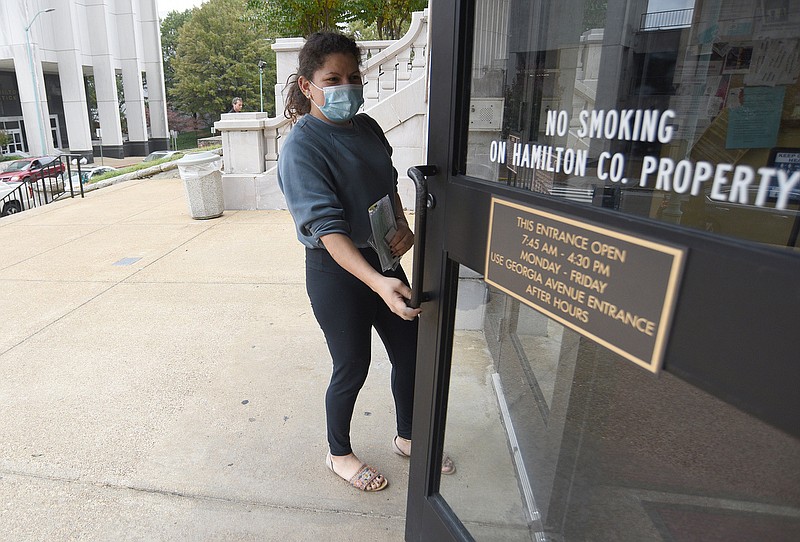NASHVILLE, Tenn. (AP) - A newly enacted law seeking to block most Tennessee schools from implementing mask mandates will continue to be put on hold as a federal lawsuit moves forward, a judge determined Monday.
The move marks the latest flurry of confusion over the contentious statute signed last Friday by Republican Gov. Bill Lee. While the law banned several COVID-19 prevention efforts, questions over applying to the monthslong legal battle over school mask requirements has become the top fight.
Over the weekend, U.S. District Judge Waverly D. Crenshaw ordered the status quo to be maintained for the plaintiffs seeking to overturn the school mask mandate ban. According to court documents, the plaintiffs consist of eight students ages 7 to 14 who have disabilities - making them more vulnerable to serious illness or death if they get COVID-19, the U.S. Centers for Disease Control and Prevention has said. Yet questions remain if the halt applies statewide or just to the school districts of the plaintiffs.
Crenshaw declined to clarify when asked by an attorney representing Williamson County Board of Education during Monday's hearing, but acknowledged that school boards are impacted by his decision even if they're not currently involved in the legal battle.
An evidentiary hearing has been scheduled for Friday, and Crenshaw is expected to hand down a ruling after Thanksgiving.
Under the law, public schools and other government entities would only be allowed to require masks if they are in a county with a rolling average 14-day COVID-19 infection rate of at least 1,000 per 100,000 residents while the state is under a state of emergency. None of Tennessee's 95 counties currently meet that threshold.
But even if a school were to meet the threshold, mask mandates would be limited in use. The school's principal would have to request the mandate to the school board. If approved by the board, the mandate could only apply to that particular school - not the whole school district - and just up to 14 days. Religious and medical exemptions would be required.
Yet the bill does include schools among the entities eligible to apply for exemptions to the proposed vaccine and mask mandate bans. Those entities must reach out to the state's comptroller's office and show they would lose federal funding by complying with the state law.
Before signing off on the new law, Lee had previously issued an executive order allowing parents to opt students out of school COVID-19 mask requirements - essentially undermining any mask mandate school officials chose to adopt.
Three federal judges blocked Lee's executive order in three different counties. Notably, Crenshaw blocked Lee's order in Williamson County, while two others did so in Shelby and Knox counties. As of Monday, mask mandates remained in place for those counties under Crenshaw's order.
In a memorandum sent Monday to public and private school officials, Shelby County Health Officer Bruce Randolph said orders by Nashville's Crenshaw and U.S. District Judge Sheryl Lipman in Memphis allow the county health department's order requiring masks for students, teachers, staff and visitors to remain in place. Randolph's memo came after three Shelby County suburbs that have their own school districts dropped their mask requirements for Monday classes.
Lipman had previously said Friday that a preliminary injunction barring enforcement of Lee's order allowing parents to opt out of the mask requirement was still in place.
"Schools have enjoyed a moderately low level of infection due to required masking," Randolph wrote. "The risk of contracting COVID-19 increases when people are in an indoor environment among others who are unvaccinated."
Masks are a key virus-prevention tool that are most effective when worn by a large number of people, public health experts say. The CDC has again recommended them for schools, saying they don't pose health risks for children older than toddler age.
___
Associated Press writer Adrian Sainz contributed to this report from Memphis, Tennessee.
